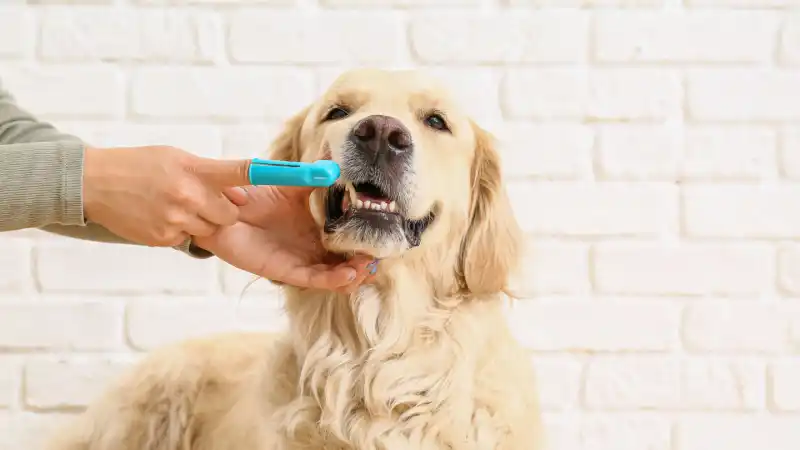Summer Safety Tips for Dog Owners: A Vet’s Point of View
Having fun in the summer sun is a great way to bond with your dog, but don't forget to prep for the elements. Here are some unexpected injuries to watch out for.

For many pets and their people, summertime is synonymous with getting outdoors. When the snow is gone, depending on your location, heading outside with family, friends, and dogs is always great for sun, fun, and adventure.
As much excitement as summer brings, there are a few things to remember regarding the safety of our canine companions. As a veterinarian, here are a few examples of injuries and ailments I’ve noticed occurring more frequently during the summer season.
Swimmer’s Tail Is a Common Injury
As the weather warms, many people head for pools, lakes, rivers, or the ocean. Our dogs often like to take a dip too or chase a ball into the water. However, since most dogs have not been very active in the water, a common but little-known injury is “swimmer’s tail.” The symptoms of this condition can make pet owners think that their dog’s tail is broken, as it usually just hangs between the rear legs and is flaccid with no movement.
This prompts a visit to the veterinarian, and a general exam typically reveals swelling and pain near the base of the tail. Depending on the situation, an X-ray may be warranted to rule out other causes. Some cases resolve with rest, and others require a short course of anti-inflammatories. It can depend on how much discomfort the “swimmer’s tail” is causing your dog. Medium to large breed dogs, including Labrador Retrievers and Pointers with longer tails, are more commonly affected.
To help prevent the injury, which is a combination of muscle strain and swelling, it is best to gradually introduce your dog to water activities. Avoid lengthy swims at the beginning of the season, especially in cold water or in rivers that require heavy exertion to go against the current.
Avoid Paw Pad Injuries
Another injury that occurs near water or on hikes with a rocky trail is paw pad abrasion. During the winter, some dogs aren’t as active and lose the hard callouses on their paw pads. In addition, water will soften their paw pads even further, and playing on rocky or sandy shores can be rough on the pads, causing them to peel off completely.
The primary sign of this condition is the dog will limp on their affected paws that evening or the next day. They also frequently lick the affected paws making the lesions worse.
Some minor cases will resolve on their own, but most end up with topical or oral anti-inflammatories and antibiotics. Sometimes, a sock or e-collar may be required to keep the pet from licking. In severe cases where there is ulceration or open wounds on the pads, a bandage may be required to protect the paws from further damage and help control the pain.
Gradually building up your dog’s playtime and checking the paw pads after activity will help prevent the lesions. Similar injuries can occur from walking on the hot black asphalt for only a minute or two in hot temperatures. If your dog tolerates them, wearing protective booties can also help.

Every Dog and Cat Deserves the Pet Insurance of Champions
Get prize-winning care for your pets.
Pancreatitis Is a Vet Emergency
Outdoor grilling, a classic summer event, is also the perfect opportunity for our dogs to sneak food. Sometimes, it is even given to them out of kindness by kids or adults as a treat. Unfortunately, ingestion of certain human foods or trash can lead to vomiting and diarrhea. In some cases, pancreatitis may develop, especially if the food is fatty. Most dogs are not used to ingesting fatty human food, at least not in large amounts.
As a result, the pancreas, which aids in digestion, can become inflamed, resulting in severe, repeated vomiting and dehydration. Many cases of pancreatitis can be treated successfully with medication and fluid support, but some can become very severe, resulting in hospitalization and even death. Not allowing your dog access to the food or making sure your guests are aware that they should not feed your dog will help prevent episodes of gastrointestinal upset.
Common GI inflammatory conditions include:
Gastritis
Enteritis
Inflammatory Bowel Disease (IBD)
Constipation
Pancreatitis
Supervise Your Dog Around the BBQ
Summertime BBQ season also increases the risk of ingesting foreign objects, such as bones and corn cobs! These foods are neither digestible nor pass through the intestinal tract easily. Bones may be swallowed whole and get stuck almost anywhere in the intestinal tract. Even if they are chewed, they can break into sharp fragments and become stuck or damage the intestines.
To avoid accidental ingestion of a foreign object, it is best to avoid giving your dog bones or anything hard and indigestible. One patient I clearly remember is a Bernese Mountain Dog who came in on a Saturday afternoon in the summer for vomiting and not eating. X-rays revealed an intestinal foreign object. After emergency surgery (which yielded a corn cob!) and a weekend stay in the hospital, he recovered from his corn cob ingestion. However, this is not always the case, and it is expensive to stay overnight in the clinic. Because we can’t prevent our dogs from eating things they shouldn’t 100% of the time, it is a good idea to consider getting pet insurance, since it can provide assistance with costs when unexpected emergencies occur.
There are many common injuries for dogs during the summer. The risk can vary by region, like rattlesnake bites, salmon poisoning, tick-borne disease, and extreme heat. No matter your region, you should educate yourself on the risks where you live, or anywhere you plan to vacation. Keeping your pets on a leash, bringing extra water, avoiding high temperatures, and not letting your dog overdo it are great ways to prevent any summertime blues that may come with outdoor injuries or illness.
Pet Insurance Is Here for You Year-Round
Consider enrolling your pet in a pet insurance policy for added protection from summer dangers like overheating, paw pad issues, and foreign body ingestion.
Accident & Illness Coverage offered by AKC Pet Insurance (underwritten by Independence American Insurance Company) is here for you when you need it, allowing you to focus more on summertime fun with your pet and less on costly vet bills.

Every Dog and Cat Deserves the Pet Insurance of Champions
Get prize-winning care for your pets.
Dr. Preston Turano graduated from the University of Illinois College of Veterinary Medicine in 2002. Since that time, he has been a Veterinarian, Medical Director, and Practice Owner.
READ MORE ARTICLES

